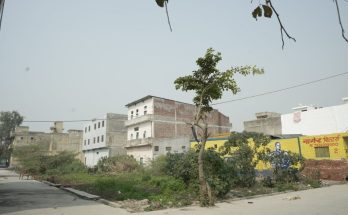The world is a stage, and the market are the players. Global events, from political upheavals to economic shifts, are the scriptwriters, crafting the plot twists that keep market trading on its toes. Let’s dive into the dynamic dance between global happenings and market movements, shall we?
The Ripple Effect of Geopolitical Tensions
a world map covered in pins, each representing a geopolitical hotspot. When tensions flare up in one corner, market trading feels the tremors. Whether it’s a trade war between economic giants or a regional conflict, the ripples spread far and wide. Investors become jittery, and market volatility surges. The uncertainty can lead to a mass exodus or a stampede into safe havens, depending on the market’s mood.
Take North Korea’s missile tests, for instance. Each launch sends a shiver down the market’s spine, causing a flurry of trading activity as investors try to hedge their bets. Gold prices often spike, while stocks in the region take a hit. It’s a game of geopolitical roulette, and market traders are the players with the highest stakes.
Economic Indicators: The Market’s Pulse
Market trading is like a seismograph, constantly measuring the economic pulse of the world. From employment figures to GDP growth, these indicators can make or break a trader’s day. A strong jobs report can send stocks soaring, while a disappointing one can trigger a sell-off.
Consider the US Federal Reserve’s interest rate decisions. They’re like a conductor leading an orchestra, with market traders watching every move. A rate hike can strengthen the dollar, affecting currency markets globally. Traders scramble to adjust their portfolios, hoping to catch the wave of the new economic tune.
Natural Disasters: When Nature Strikes the Market
Mother Nature can be a wildcard in market trading. Earthquakes, hurricanes, and other natural disasters don’t need a passport to impact global markets. When disaster strikes, it’s not just the physical damage that’s felt; supply chains are disrupted, and economic activity slows. This can lead to a drop in market confidence and a dip in trading volumes.
Remember Hurricane Katrina? It wreaked havoc on the Gulf Coast and sent oil prices skyrocketing. Market traders had to navigate through the chaos, trying to predict the storm’s path and its aftermath on the market. It was a test of agility and foresight in the face of nature’s fury.
Technological Advancements: The Market’s New Frontier
In the fast-paced world of technology, market trading is on the cutting edge. Cryptocurrencies, AI, and automation are reshaping the market landscape. These advancements can create new opportunities and challenges for traders.
The rise of Bitcoin and other digital currencies has been a game-changer. They’ve introduced a new asset class to the market, with its own set of rules and risks. Traders have to stay on their toes, learning the ropes of this digital gold rush and navigating the volatile swings of the crypto market.
Market Sentiment: The Mood Swings of the Market
Market sentiment is like the weather – it can change in an instant. A piece of positive news can brighten the day, while a scandal can cast a dark cloud over the market. Traders have to be emotionally agile, adapting to the mood swings of the market.
The Enron scandal is a classic example. It sent shockwaves through the market, eroding trust and causing a of stocks. Traders had to quickly reassess their positions, trying to salvage their investments amidst the fallout. It was a lesson in the fragility of market sentiment and the importance of due diligence.
Global Health Crises: Pandemics and the Market
When a global health crisis hits, like a pandemic, it’s not just the healthcare sector that feels the impact. The entire market trading landscape is upended. Travel stocks plummet, while pharmaceutical companies see a surge in demand.
The COVID-19 pandemic is a case in point. It triggered a global economic shutdown, leading to a historic market crash. Traders had to grapple with unprecedented volatility and make split-second decisions in a rapidly changing market. It was a test of resilience and adaptability in the face of a global health emergency.
Market Trading in a Globalized World
In today’s interconnected world, market trading is a global affair. Events in one corner of the globe can have a domino effect on markets worldwide. Traders are the diplomats of the financial world, navigating the complex web of global events and their impact on the market.
The Brexit referendum is a prime example. It sent shockwaves through the European market and beyond. Traders had to quickly adjust their strategies, dealing with the uncertainty and the potential economic fallout of the UK’s departure from the EU. It was a high-stakes game of geopolitical poker, with market traders holding the cards.
Conclusion: Navigating the Global Market Stage
Market trading is a dynamic, ever-changing landscape, shaped by the global events that unfold around us. Traders are the navigators, steering their way through the currents of change. It’s a thrilling ride, filled with challenges and opportunities. So, strap in, and get ready to dance with the global market stage. The show must go on.




